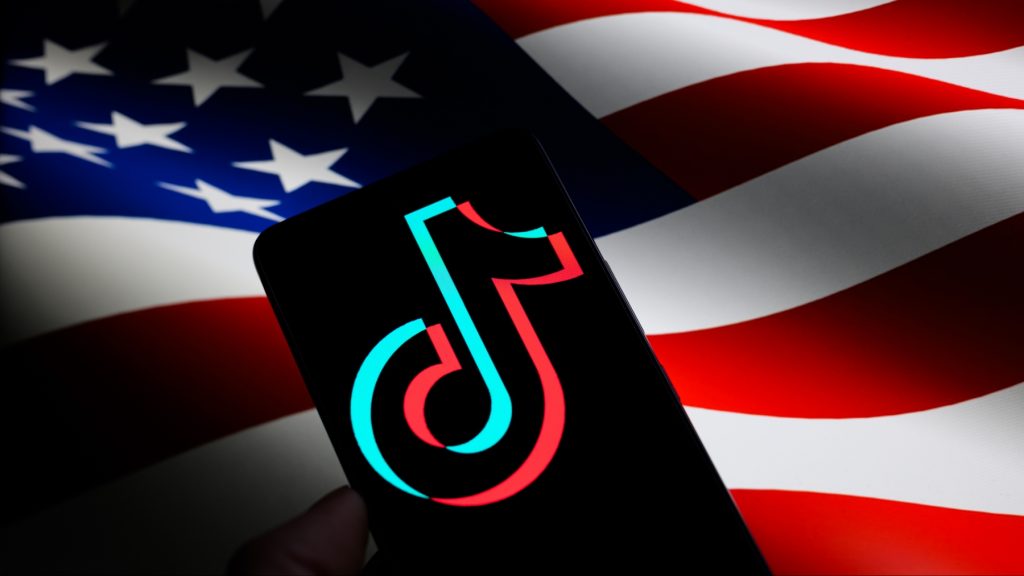
ByteDance, the Chinese parent company of TikTok, has approximately twelve months to sell off its ownership or confront a prohibition, with US legislators asserting that the firm presents a security risk.
The US Senate has strongly endorsed a legislation that mandates the ban of TikTok unless ByteDance, its Chinese proprietor, sells off the video-sharing platform within nine months due to apprehensions about its potential threat to national security.
TikTok has refuted claims that the Chinese government could obtain users’ data and has criticized the legislation, which passed with a 79-18 vote, as unconstitutional. The bill was appended to a provision to allocate a $95 billion emergency assistance package for Ukraine, Israel, and Taiwan.
Leading to these events, the bill was signed by President Joe Biden on Friday. But is this the reason the US wants to ban TikTok?
Why Does the US want to Ban TikTok?
The ban on TikTok stems from concerns about potential security risks associated with its Chinese ownership. ByteDance, the company behind TikTok, acquired the popular karaoke app Musical.ly in 2017 and rebranded it as TikTok. The app has rapidly gained popularity in the US, boasting 150 million monthly subscribers. Globally, TikTok surpassed one billion monthly active users in 2023 and generated a revenue of $120 billion, with $16 billion coming from the US alone.
However, TikTok’s growing influence has raised alarms among spy agencies and US lawmakers. There are fears that TikTok could potentially share users’ data with the Chinese Communist Party (CCP), although TikTok has denied these allegations. Critics argue that such data could be exploited by China to disseminate misinformation, posing a threat to democratic processes.
“For years, we’ve allowed the Chinese Communist Party to control one of the most popular apps in America. That was dangerously shortsighted,” said Senator Marco Rubio, the top Republican on the US Senate Select Committee on Intelligence. “A new law is going to require its Chinese owner to sell the app. This is a good move for America.”
In December 2022, the US Congress prohibited the app’s use on federally issued devices or networks. Several other nations have mirrored this action, imposing restrictions on TikTok in governmental settings. India enacted a ban in 2020 amid border tensions when the app had 200 million users.
The popular app has faced allegations of promoting pro-Palestine content, which TikTok has refuted. Last November, the company stated that 60% of its users in the US, predominantly aged 16-24, expressed sympathy for Palestine.
The Reason for the Ban
One of the largest Jewish organizations in the US has voiced support for a suggested ban on TikTok, stating the applications support to ‘anti-Semitism’ and heightened criticism of Israel within its dominant user base.
The Jewish Federations of North America (JFNA), an American Jewish group, conveyed its backing for the US potential ban on ByteDance parent company of TikTok in a public letter to Congress, citing apprehensions that such a prohibition might erode Americans’ freedom of expression.
“Our community understands that social media is a major driver of the rise in antisemitism and that TikTok is the worst offender by far,” JFNA stated, making them notice a rise in “anti-Israel” views and “overt bias and sympathy to terror with regard to the events of October 7th” shared on TikTok as evidence of antisemitism.
The ban on TikTok in the US isn’t solely due to ByteDance’s inability to comply with privacy measures, but its implications extend to the Middle East. In a world driven by fast-track technology, it appears that the truth in the Middle East shall never be told. However, in this rapidly advancing tech landscape, how long can we hide from reality?
Inside Telecom provides you with an extensive list of content covering all aspects of the tech industry. Keep an eye on our Tech sections to stay informed and up-to-date with our daily articles.